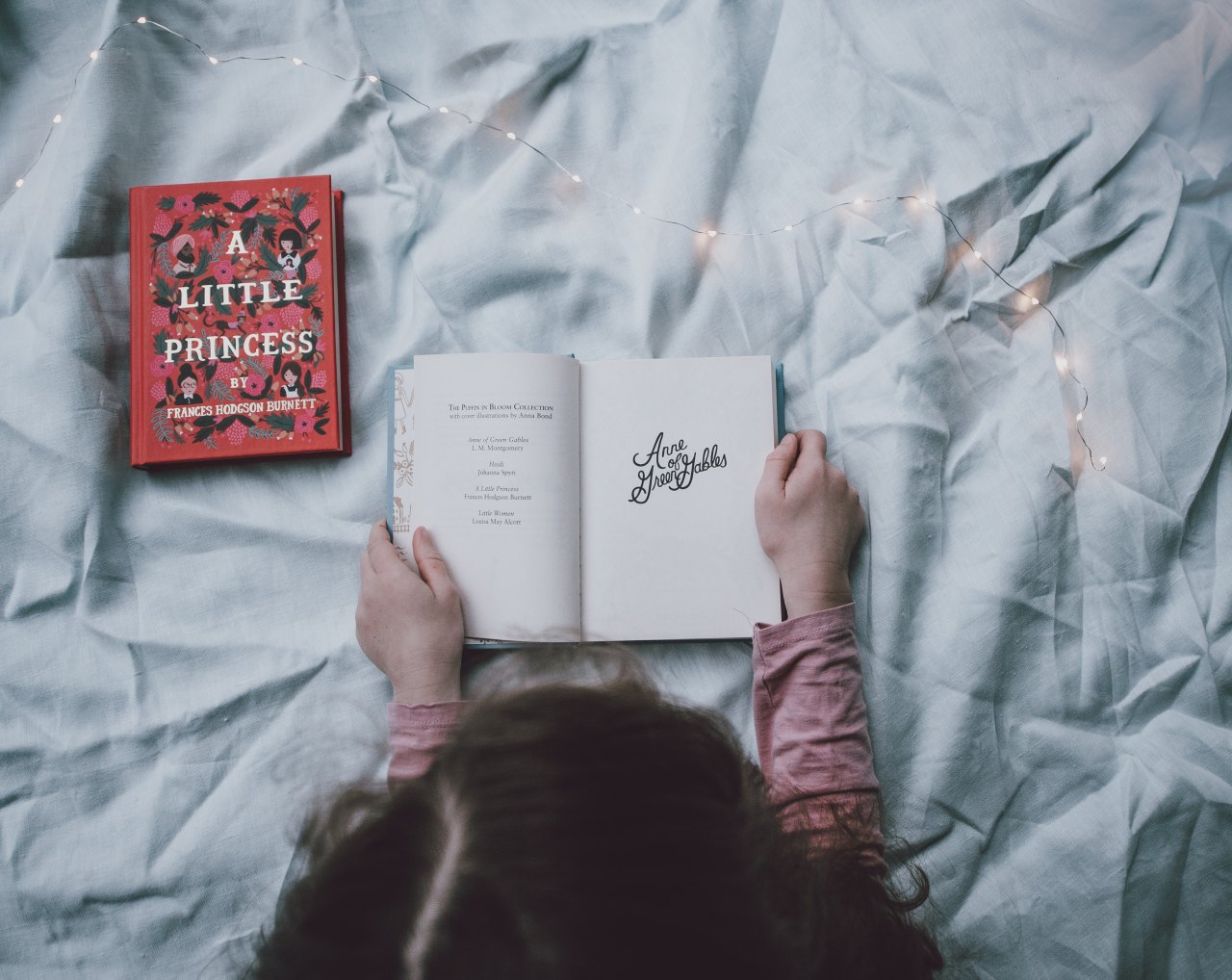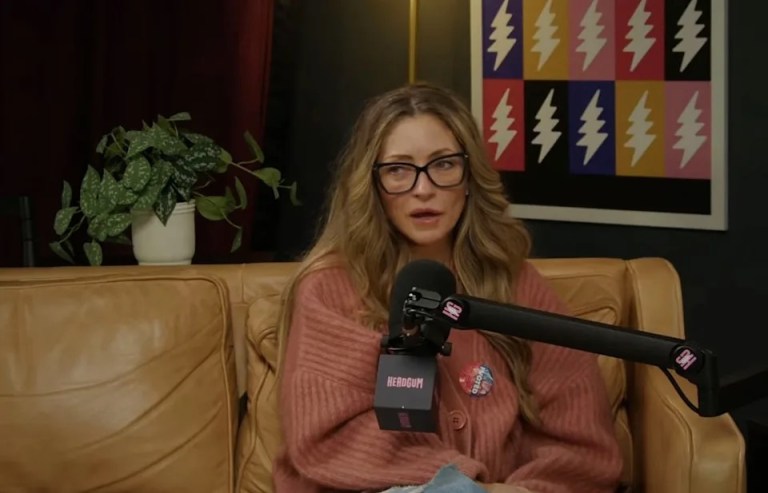
I Never Want To See My Mother Again, And I’ve Never Felt More Free
I am not hung up on the past, nor does this particular story have any bearing on my life now, except it did become a pattern of what was to come.
By ![]() Jodee Prouse
Jodee Prouse
I know it sounds horrible, when I say, “I never want to see my own mother again.” I know you must think I am a dreadful, nasty person. That I am unforgiving. That I am mean-spirited and filled with anger and hate. But that couldn’t be farther from the truth. I know you believe that there is no one in the world that loves you more than your own mother. No one that has given more of themselves. That there is no one that sacrifices more or puts their own feelings aside for your own happiness more than your mom.
But what if I disagreed with you? That is YOUR mother.
I spent more than forty years trying to make my mother happy. I loved her and my younger brother and sister deeply. At the time, I thought we were such a close family, tighter than most. Dedicated to each other. But what I see now as I look back is a five-year-old girl being given responsibilities no child should have. One of my earliest memories is when that innocent little girl with brown pigtails told her mommy that her daddy was “bringing a lady home when you are at work.”
Now, forty-five years later, I vividly remember my mother’s response. Not to my dad, but to me. That it was my job to relay the message to my dad’s afternoon girlfriend: “My mommy says you are not allowed to come to our house ever again.”
I did as my mommy told me.
I am not hung up on the past, nor does this particular story have any bearing on my life now, except it did become a pattern of what was to come. My mom always needed something from me. Always. On her request, I moved in and cared for my sick grandmother when I was only seventeen until it was obvious she needed full-time hospital care. At 22, recently married and with a newborn baby, I took in my troubled fourteen-year-old sister when my mom could no longer handle her. In later adulthood, I had the unbearable burden of trying to save my greatest friend, my beloved brother, from his own demons as he battled alcoholism. A battle that he lost in 2012 when he took his own life.
My mother raised me to believe that it was my duty to look after the needs of my her, my brother, and my sister above all others, including myself. And I believed her. After all, I thought, that is what you do for the people you love.
My mom didn’t sit me down and tell me these things, but the message was loud and clear. I took that message to the extreme for a very long time, until eventually I reached a breaking point when I was almost forty. The guilt I felt for putting my mom’s, my brother’s, and my sister’s needs ahead of my own, my husband’s and my children became unbearable. And so, I tried to set a healthy boundary; mustering up the strength to kindly say no when each of them needed once again to be bailed out of some immediate disaster. It was never up to me, nor a sign of love, to be responsible for the choices of my loved ones. I tried. And failing time and time again all that left me was broken and a feeling of being a complete failure.
I still remember the text message I received the middle of February 2013. I had been on a short vacation a few days prior and was sitting quietly early in the morning with friends, enjoying the sunny weather at Lake Havasu when I heard my phone beep. I took a quick peek. It was from my mother, asking when my son’s birthday was. It didn’t surprise me, after all, she has two grandsons by me and she has no idea what day they were born.
I replied we were having fun and that Ry’s birthday had come and gone. I was hoping she would just let it go. I was annoyed when the second text came through: “when was it then?”
“You’re kidding, right???” was my reply. I guess I was hoping that my mother would gather more insight. Put in more effort. After all my brother had been gone for almost a year. Wouldn’t that lesson cause you to go out of your way to be closer to your other family members?
Then the final blow: “No I am not. I have done nothing wrong.”
It took me a long time to come to terms with my relationship with my mother. Not only understanding her, but understanding myself as well, as I too have made choices and I am accountable for that. I have gravitated toward articles and books that have given me knowledge and strength such as Will I Ever Be Good Enough? Healing the Daughters of Narcissistic Mothers By Karyl McBride Ph.D. , Emotional Blackmail: When the People in Your Life Use Fear, Obligation, and Guilt to Manipulate You by Susan Forward, Ph.D and Codependent No More: How to Stop Controlling Others and Start Caring for Yourself by Melody Beattie. I have been in continued therapy to help myself understand why all this went so wrong. Not to point the finger. Not to blame. But to work through my own thoughts, grief, and guilt for never wanting to see my own mother again. And everything led back to the same conclusion: our relationship was toxic and unhealthy and came with too many strings.
I believe with all of my heart, that my mother is a Narcissist. And I know now that this is not my fault. Likely something happened to my mom in childhood that she has not resolved, and I am sorry for that. I am. But that is another example of something that isn’t my responsibility to change or fix.
Some signs of a Narcissistic mother are:
She uses manipulation and guilt to get what she wants.
She likes to present a perfect family image to outsiders.
She is always a victim.
She never listens to or cares about your feelings.
She is incapable of empathy.
She manipulates your emotions to feed off your pain.
Siblings are pitted against each other.
She “parentified” you. This is a process of role reversal where a child is made to feel obligated to act as the parent to their own parent, and often siblings.
She is never wrong.
She has a favorite child, often called the “golden” child.
Love only comes when she is getting what SHE wants.
She violates your boundaries.
She becomes combative and explosive over any amount of criticism.
If you dare to speak out, you will become public enemy number one and she will attempt to destroy you and your reputation at all costs.
She will never change as they are not capable of self-reflection.
I had lived through 44 years of all of the above and, if I am being completely honest with myself, I probably would have lived with 44 more. That is the power of love a daughter has for her mother.
I wasn’t angry about her text. I was hurt, but I think what I was most was disappointed. That she, after all these years, would at least attempt to show some sort of care and attention for my now adult sons. I decided when I got home a few days later, I was going to say something this time instead of remaining silent. I picked up my cordless phone from the kitchen counter and dialed her number. I was calm and cool. After all, what I do know when it comes to my mother is that I have to be. We are not allowed to say our feelings in our family.
So, I spoke quietly and cautiously: “Mom, you really hurt our feelings. My birthday came and went in December. Rick’s birthday (her other grandson) came and went and now Ryan’s has. You couldn’t even take the time to buy a birthday card for any of us?”
“You have goooooooooot to be kidding!, she replied in a tone I recognize so well.
“No, Mom, actually I am not. Birthdays matter. Cards matter. If they didn’t there wouldn’t be aisles and aisles of them in stores everywhere.”
“I am really sick of this, Jodee. Everyone hates us because of YOU!” she barked.
“Okay, Mom, that’s not why I called but let’s roll with it. What do you mean?” I stayed cool and collected.
“Your sister and I. Everyone hates us because of you. And you didn’t even see your brother for the last five years of his life.” Her words echoed in my ear and felt like a knife in my heart.
Narcissistic mothers intentionally try to hurt their scapegoat daughters. I know it seems implausible, that is why many of us stick around for so long because it is just as impossible for us to believe. But understanding narcissism, I can see my mom’s behavior is intentional. It is how she feels better about herself.
Through an extraordinary and painful journey, I realize now that we often make excuses for people because we love them. But loving someone does not mean we should allow them to treat us badly. Being related to someone does not mean we should tolerate their toxic behavior, unrealistic expectations, constant chaos, and psychological and emotional abuse. Maybe not abuse with broken bones and bruises, but still abuse. Even if it is our own mother.
We should expect more from family. A lot more. Not less.
If people like or dislike my mother or adult sister that has absolutely nothing to do with me. Nothing. Saving my brother from addiction and mental illness was not my responsibility. My own mother making me believe for so long that it was, was cruel.
I had heard those words so many times before in person. In emails. Texts. My mother (and following my mothers lead as the proverbial flying monkey, my sister, too) takes every chance she gets to remind me that I didn’t see my brother more than a handful of times during the last years of his life.
I will not spend the rest of my life listening to her callous insinuation that I gave up on him and that I abandoned my family. I lost a brother that I adored, and I feel his absence every single day. I am strong, confident and know the truth in my heart. I did not see my brother very often during those last years; that part is true. Not because I didn’t love him. Not because I didn’t believe he couldn’t get well, but because he couldn’t stay sober and I had to find the courage to draw that healthy boundary—to finally protect my own heart and for the wellbeing of my young children whom I had previously allowed to witness traumatic events.
And that decision was between my brother and me, no one else.
My mother’s spiteful reminder isn’t what hurts me. What does hurt and brings instant tears to my eyes all these years later, is that I fear she made my brother believe I gave up on him. Maybe he felt I had stopped loving him. And not knowing what he thought the last few minutes before he took his life haunts me.
But I can’t change any of that. What I was in control of then and now is what I was and am willing to accept. I know now there is nothing, absolutely nothing I could do in this lifetime that would please my mother. To her, I am here to serve her and her needs only. And that, friends, is an impossible task for anyone.
I know now there are others who do understand, most like me that do not explain all the things that have happened during a lifetime that forced us to make this painful decision of low contact or no contact with the woman that brought us into this world. Ones like me, whose other family members stopped talking to them for no reason because they believe we are mean and cruel to our own mothers. Ones like me, on various private Facebook groups who share similar stories and who support, love, and listen to one another so we don’t feel so alone. Or ones like me, who write articles once in a while in hopes of giving others courage and hope.
I don’t expect most of you to understand; I just know that others experience life differently. You don’t need to say anything but try not to judge and condemn us. Have an open mind and an open heart. Some people in this life must make choices that you never have to make. I understand that and know that I am sincerely happy for you. And somewhere deep down, I hope you are happy for me.
I never want to see my mother again.
Saying that does not make me heartless or cold. I am a good person. What I also am is healed. I have worked extremely hard, through therapy, which I took very seriously, and I am grateful to be in a happy and healthy place in my own life. The alternative would be to spend the rest of my life wanting and struggling for something I will never receive from my mother—the ability to live my own life. And unconditional love.
And so, calmly, rationally, and confidently I spoke the last two words to my mother, exactly six years ago. Most people, myself included, would consider it started as a minor conflict. It was something that could have been resolved with a simple, “I am sorry. I didn’t mean to hurt your feelings.” But my mother isn’t capable of saying, “I am sorry.” She isn’t capable of a lot of things that I need. And I am allowed to decide and so are you. I will not feel guilty or ashamed. Guilt and love used to work to get me to behave in a certain way, but not anymore.
As the words still echoed in my ear, “you didn’t even see your brother for the last five years of his life”, I replied,
“Goodbye, Mother,” and I slowly hung up the phone.
I am free. ![]()











